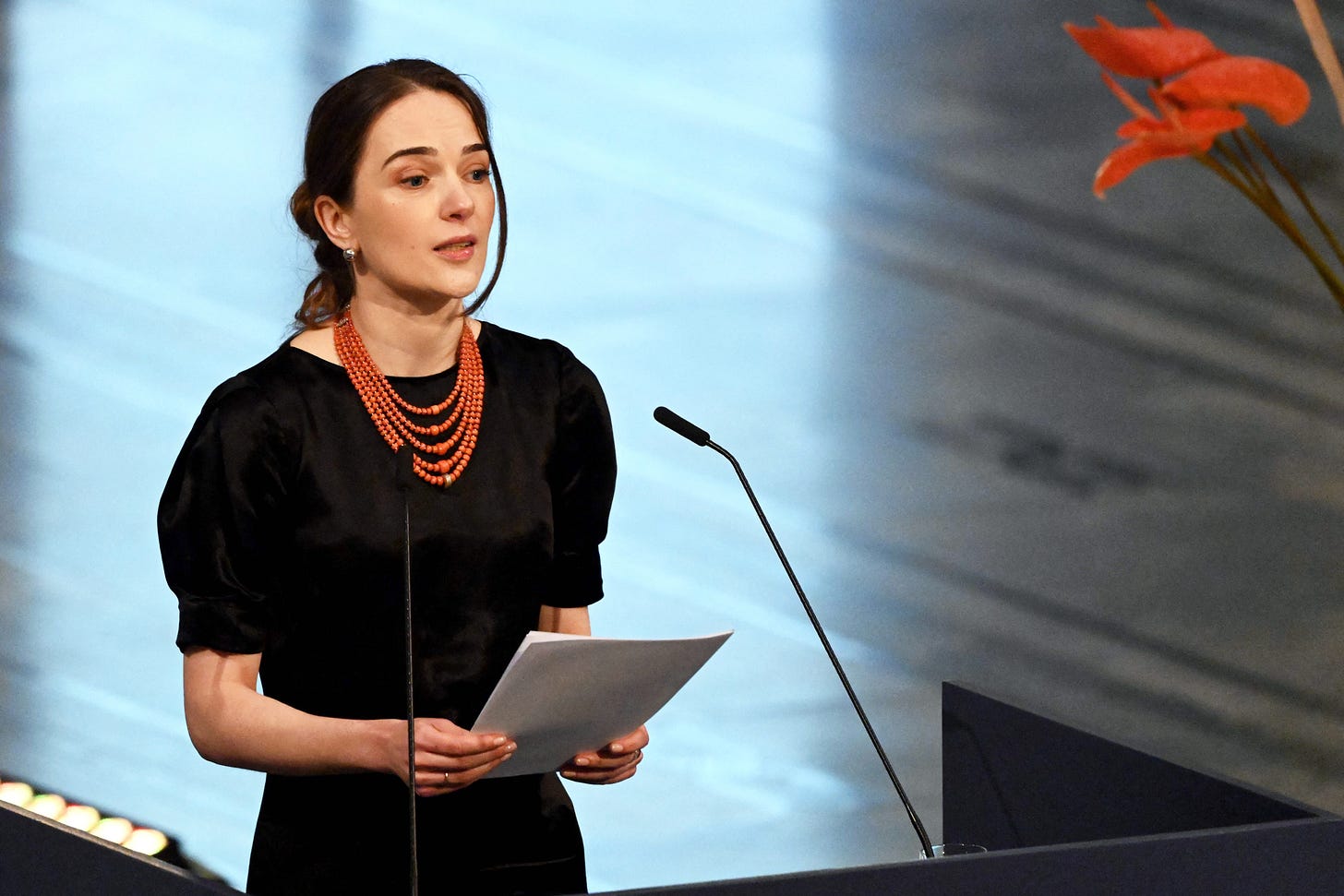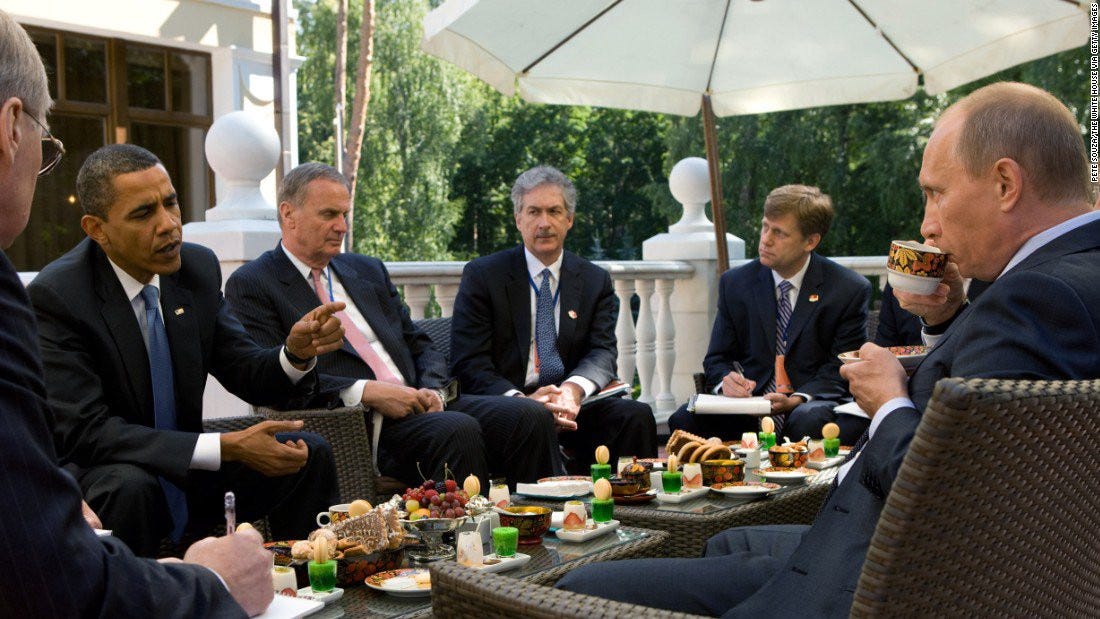Today, hardly anyone in the world supports Putin’s war in Ukraine. Since its start, I have had many discussions with senior Biden administration officials, including with President Biden himself. They want this war to end now. NATO leaders also want this war to end now. In fact, I cannot think of a single world leader who wants the war to continue. Those who believe that the Pentagon wants to use this “proxy war” to weaken Russia, or that Beijing wants to use this “proxy war” to deplete American military supplies, are wrong. And no one wants this war to end more than President Zelenskyy himself. Nothing is harder personally for Zelenskyy than getting the daily reports of new deaths of Ukrainian citizens who he feels he failed to protect.
I doubt there are many Russians left that support this war’s continuation. Recent polls, however imperfect, show that Russian society wants peace over war. Most business elites stayed quiet but detested this war from the beginning. As human and economic costs continue to rise, we get hints that some in Putin’s inner circle want this barbaric invasion to end, too.
There is one person, however, who clearly wants this war to continue – Vladimir Putin. If you really want peace in Ukraine, then you must either convince Putin to end his invasion or compel him to stop fighting. Right now, I don’t think that diplomatic overtures will stop Putin. Instead, more and better weapons to Ukraine, and more and better sanctions against the Russian economy, especially Putin’s inner circle, will compel Putin to stop fighting. Tragically, it’s that simple.
My critics call me a warmonger and a Russian hater when I make this argument. They say, ‘you can’t be for peace and advocate for more weapons to Ukraine.’ They say, ‘you can’t like Russians and push for sanctions that will hurt average Russian citizens, including those opposed to the war.’ I take these arguments seriously. As someone committed to peace as a goal and diplomacy as its means, I feel uneasy arguing for more and better weapons for Ukraine. The same goes for sanctions, knowing they will impact common Russians more than Putin and his circle. Right now, however, I don’t see any realistic or moral alternatives.
Would ending military support to Ukraine end the war? Of course not. Ukrainians would not stop fighting. They would continue to defend their homeland, even without HIMARS or Howitzers. Similarly, would Putin end his invasion if NATO stopped arming Ukraine? Of course not. Just the opposite. Such a move by the West would send the signal that his objectives – denazification, demilitarization, and territorial annexation of Ukraine – are obtainable. Ending military support would ultimately produce more war, not less.
Calling for the end of U.S. military aid to Ukraine as a way to pressure Zelenskyy to negotiate is also inhumane. Ukrainians have a right to self-defense. Enabling Putin to kill more Ukrainian soldiers and civilians as a strategy to end this war is immoral. But you do not have to believe me. Read the moving words of Oleksandra Matviichuk Nobel Peace Prize lecture last week:
“People of Ukraine want peace more than anyone else in the world. But peace cannot be reached by a country under attack laying down its arms. This would not be peace, but occupation. After the liberation of Bucha, we found a lot of civilians murdered in the streets and courtyards of their homes. These people were unarmed.
We must stop pretending deferred military threats are “political compromises”. The democratic world has grown accustomed to making concessions to dictatorships. And that is why the willingness of the Ukrainian people to resist Russian imperialism is so important. We will not leave people in the occupied territories to be killed and tortured. People’s lives cannot be a “political compromise”. Fighting for peace does not mean yielding to pressure of the aggressor, it means protecting people from its cruelty.”
I know Oleksandra. In 2017-2018, she was a visiting scholar at the Freeman Spogli Institute that I direct at Stanford. She is deeply committed to peace. Her organization, the Center for Civil Liberties in Ukraine, won the Nobel Peace Prize this year in recognition of that commitment. Tragically, but realistically, she is right about Ukraine’s only path to peace – resistance to occupation.
Would lifting sanctions help? No. Zelenskyy and his international partners might be able to use lifting sanctions as a bargaining chip at some point, but not before the war ends. This will mean Russians will suffer, including some Russians opposing the war. But as one of my Russian friends - living in Russia, not in exile - said to me, ‘We have to pay a price before being allowed back into the civilized world.’ I agree.
Finally, promoters of peace – in the vernacular of our era, “progressives” – used to be against empires and imperialism, and for decolonization, sovereignty, and self-determination. We should return to those roots. Telling Ukrainians to swap land for peace is imperial. Recommending Biden to talk to Putin directly about Ukraine’s future is the height of American hegemonic arrogance. To me, that sounds like the 1884-1885 Berlin conference to carve up Africa. To me, that echoes the 1945 Yalta Conference. Telling small countries to appease large countries does not feel very “peaceniky” to me.
If or when Putin is ready to engage in serious negotiations, I have some ideas. I have been in negotiations with Putin before.
We should be ready to enter into a long and complex discussion about European security. Before the war, I called it ‘Helsinki 2.0’ in my essay on “How to Make a Deal With Putin” in Foreign Affairs. Now that Putin has pursued his barbaric war for nearly a year, reparations, justice, and accountability must be added to the negotiation agenda. First, however, Putin must stop his invasion. He will only make that decision when he cannot advance his forces in Ukraine anymore. Tragically but necessary, more weapons and sanctions are the means to help Ukrainians achieve that end.
I might be wrong. I welcome your alternative ideas, as long as they’re based in reality, and shaped by an accurate assessment of Putin’s thinking and behavior. Hope is not a strategy. Let us discuss this at our next chat session early next year. Stay tuned for details.




In such a wonderfully clear and concise essay why leave the Russian’s term “denazification” unchallenged when it is a false description of their actual goal; and a term they’d love to see normalized and shared, at face value, for their own propaganda purposes?
“Such a move by the West would send the signal that his objectives – denazification, demilitarization, and territorial annexation of Ukraine – are obtainable.”
Returning kidnapped Ukrainian citizens, especially children, must be part of any “peace” as well.